USV River Deployments
Deploying Unmanned Surface Vehicles on the Schuylkill River in Philadelphia PA to collect data about the health of the river.
Research Objective:
The ScalAR Lab has two Unmanned Surface Vehicles (USV): one Clearpath Heron and one USV built in house. These robots are deployed in the Schuylkill River in Philadelphia PA. Various sensors are included onboard including: depth sensors, water quality sensors, and cameras. The aim is to collect data about the health of the river at a higher density than can currently be collected by a scientist. This involves having the robot exist in unstructured and complex environments which requires novel solutions.
Recent Work:
Each year, field deployments start in early May and end in late August. These deployments involve large teams, anywhere from 8 to a minimum of 3 people to deploy the systems safely. We can have anywhere from 5 to 12 field deployments in the summer. This is weather dependent.
Summer 2025
We have deployed to the river! We are actively working on general maintenance for the boats and looking forward to our next set of results.
Summer of 2024
Due to unforeseen circumstances we were not able to get out to the river this past summer. It is our hope to get out on the river in the early Spring to test new adaptive geofencing capabilities with the Clearpath heron.
Summer of 2023
During the summer of 2023 I served as a co-lead with Alice Kate Li for river deployments. The objective was to collect data using the Clearpath Heron robot and make overall hardware improvements to the custom USV. In addition, we started testing with new robot behaviors to allow the Heron to respond to data collected in real time.
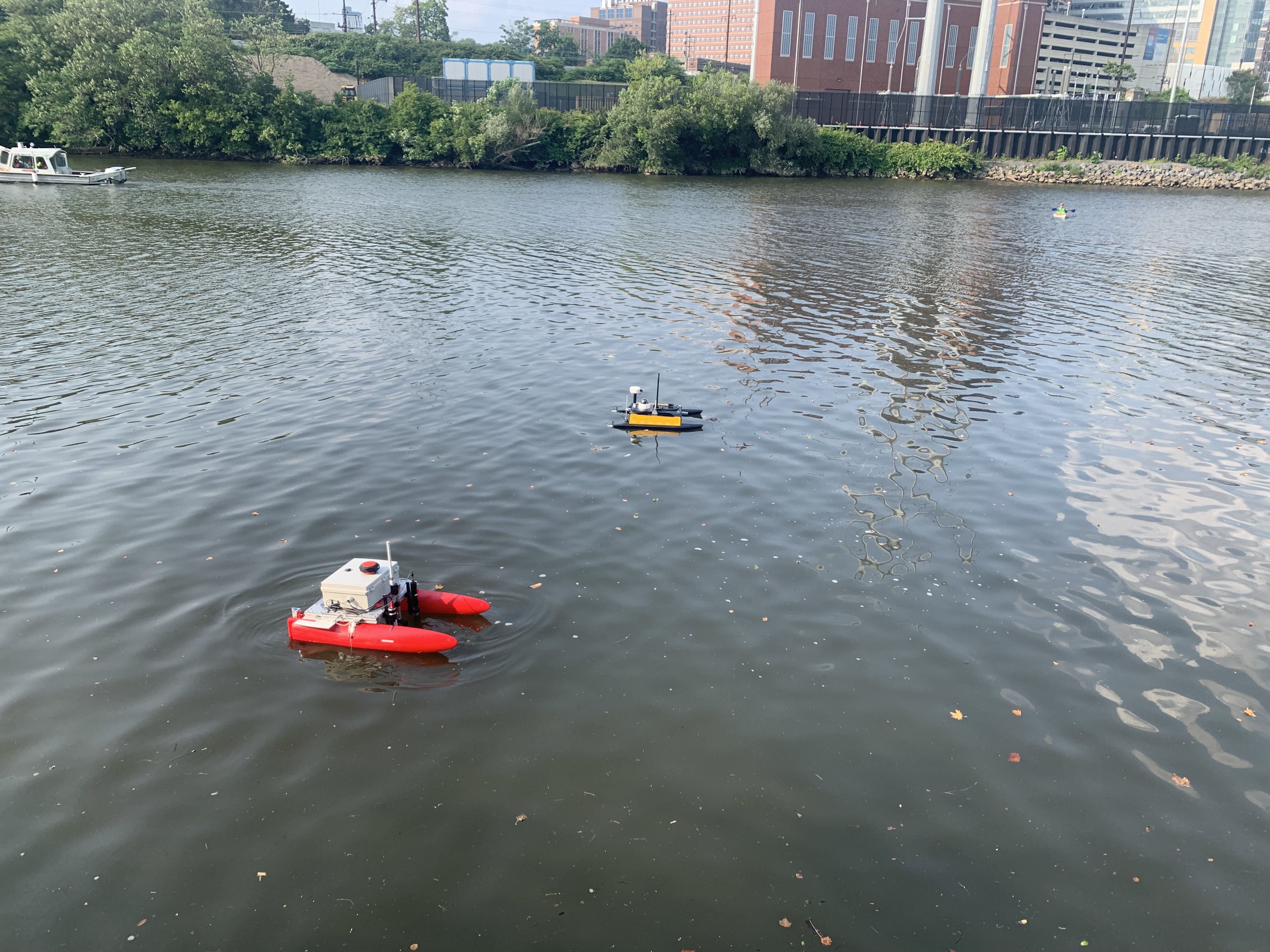
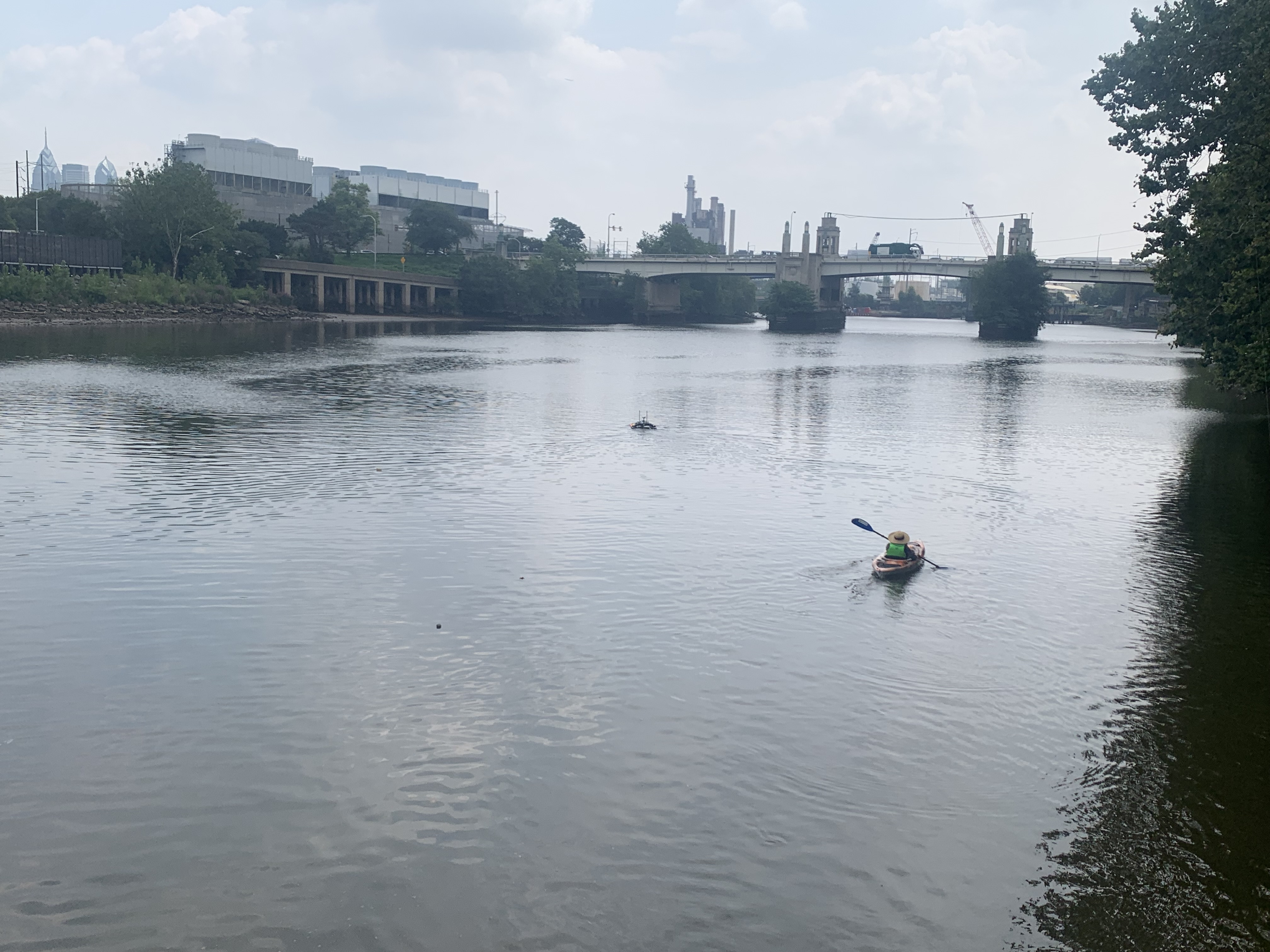
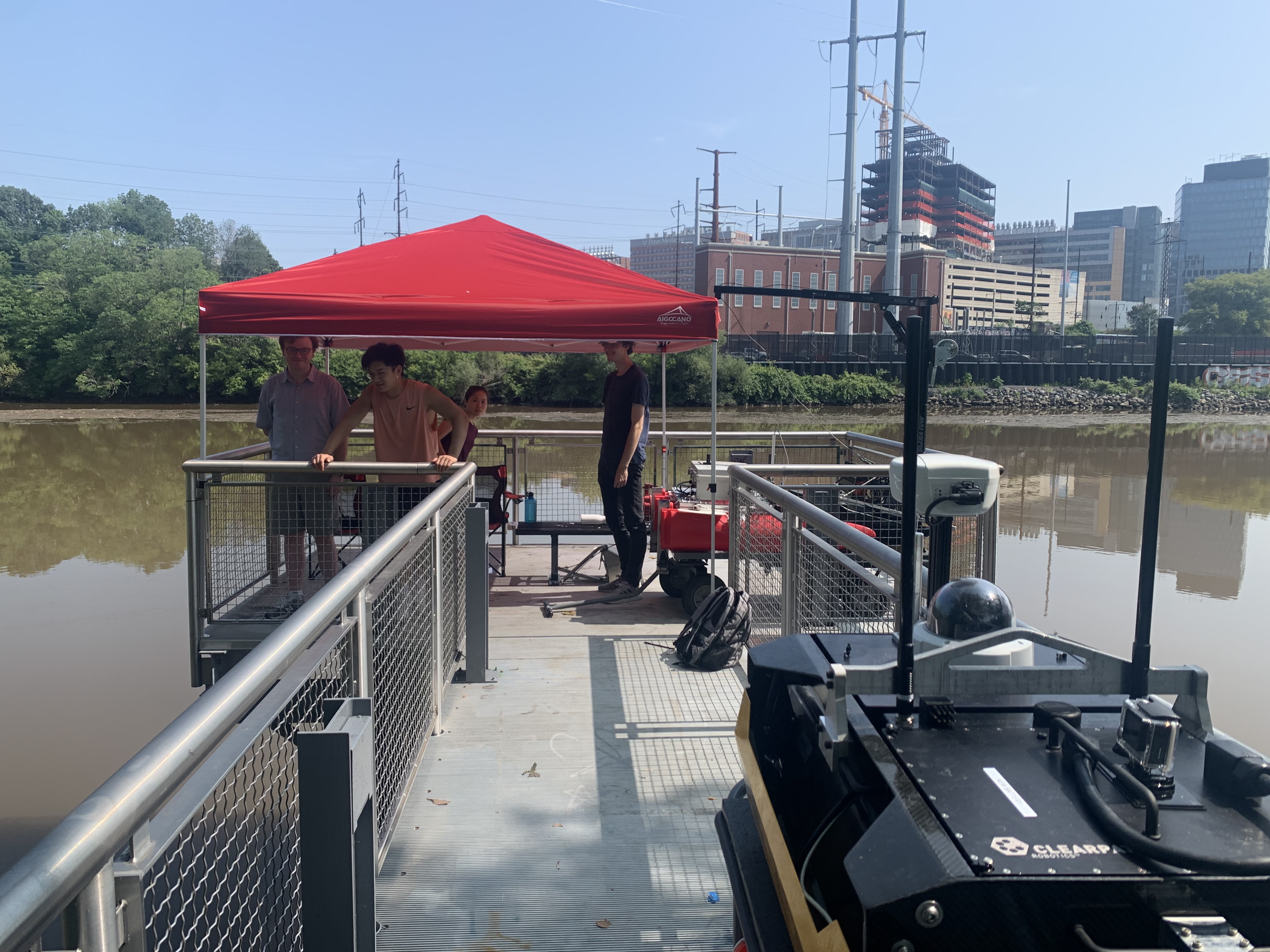
Summer of 2022
The summer of 2022 the USV project was taken over by Alice Kate Li, an ESE PhD student. The objective for the summer was to continue to collect more data about the river and expand our capabilities to two autonomous surface vehicles. We had successful runs using both boats collecting many different types of data. During some of these deployments I was able to act as the safety kayaker and had a great time working with the robots up close and personal on the water.
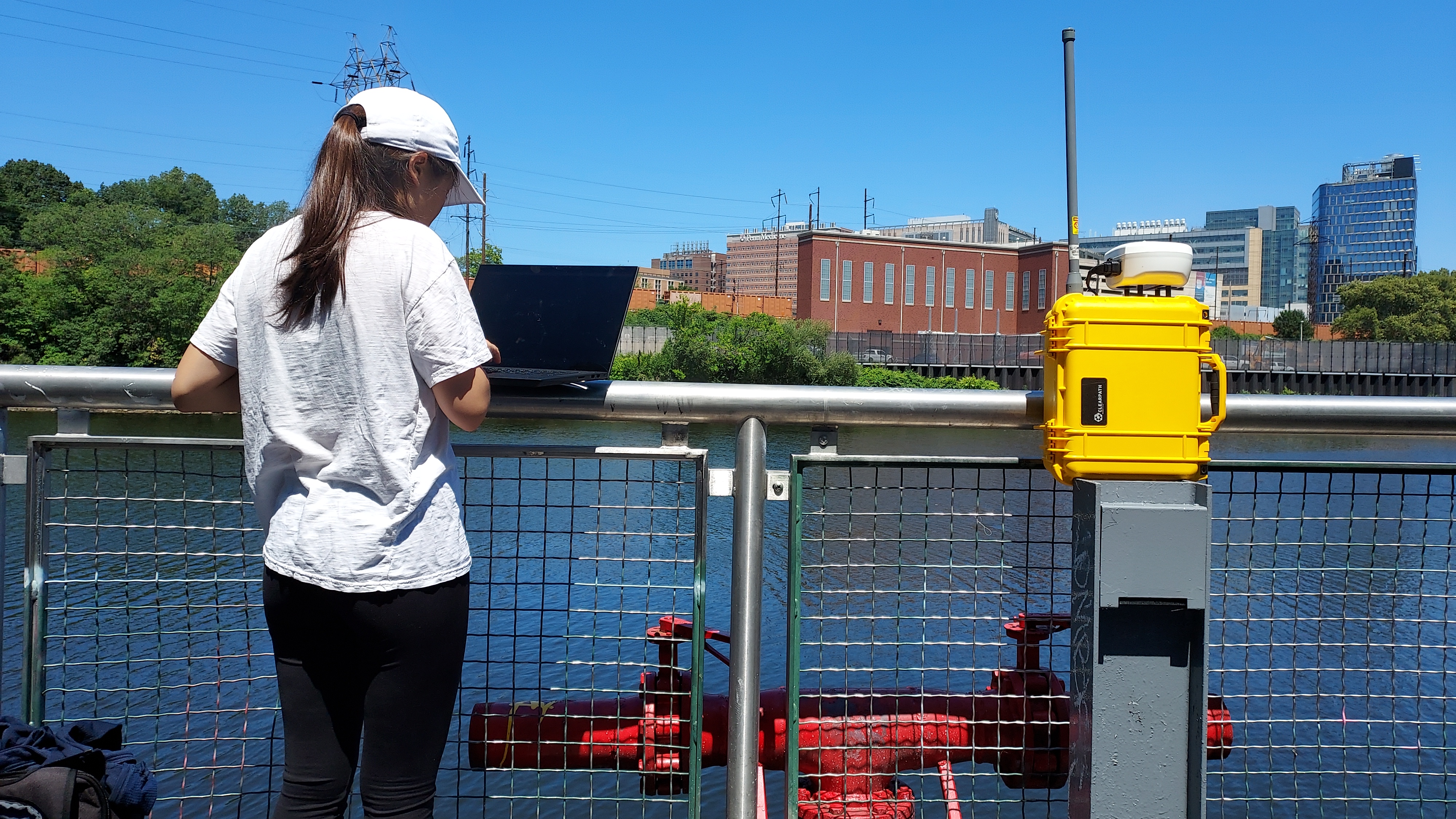
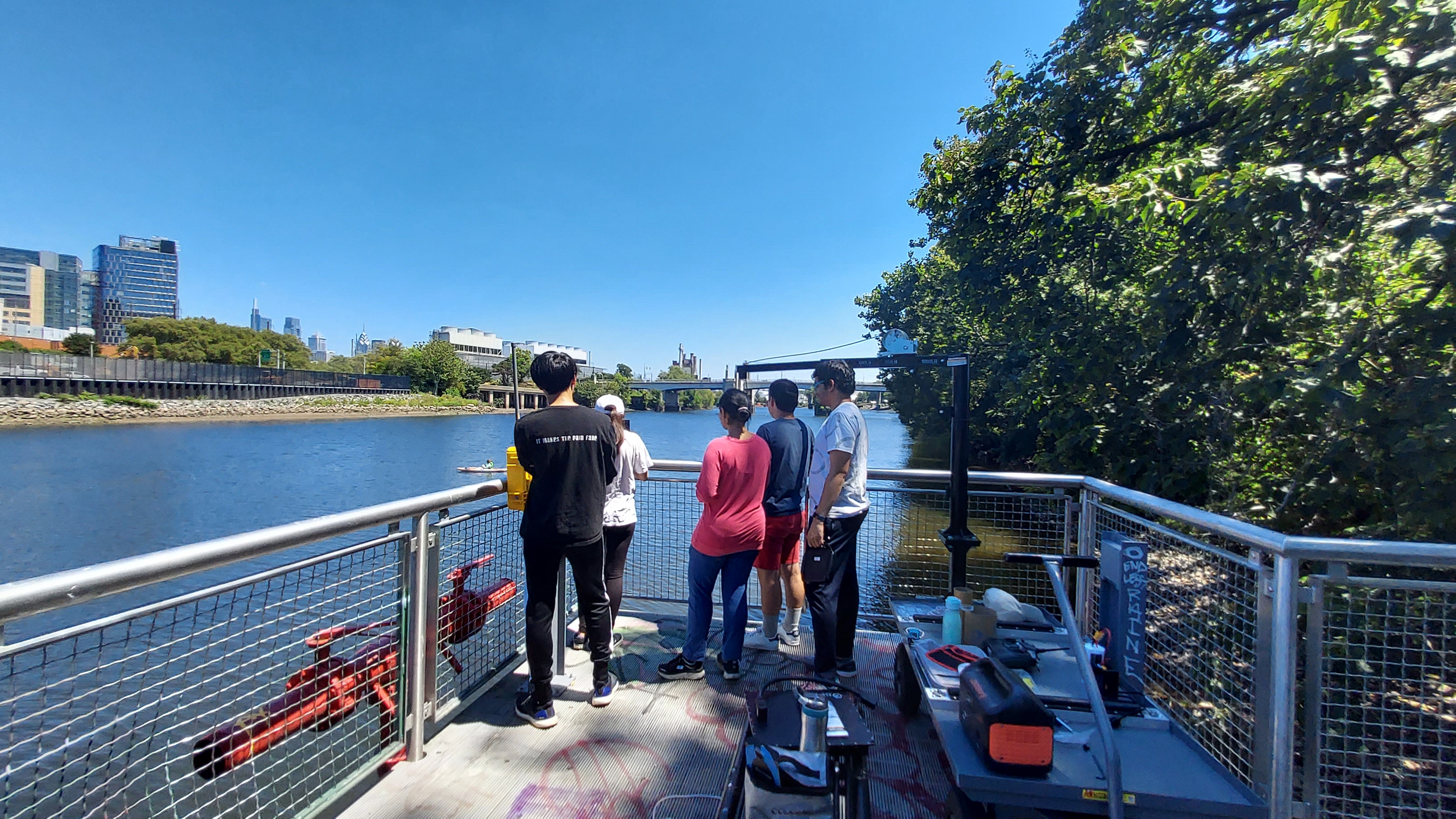
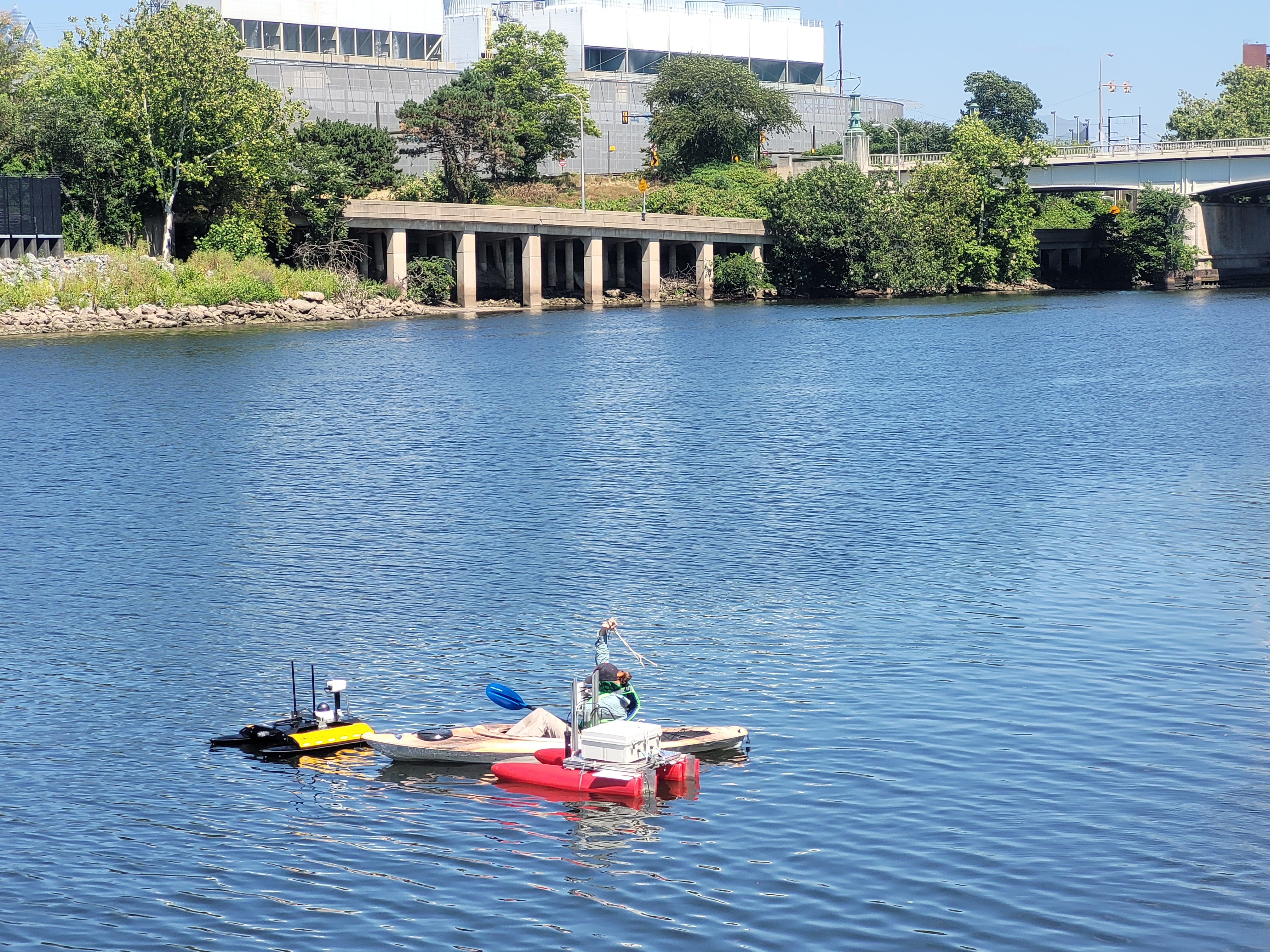
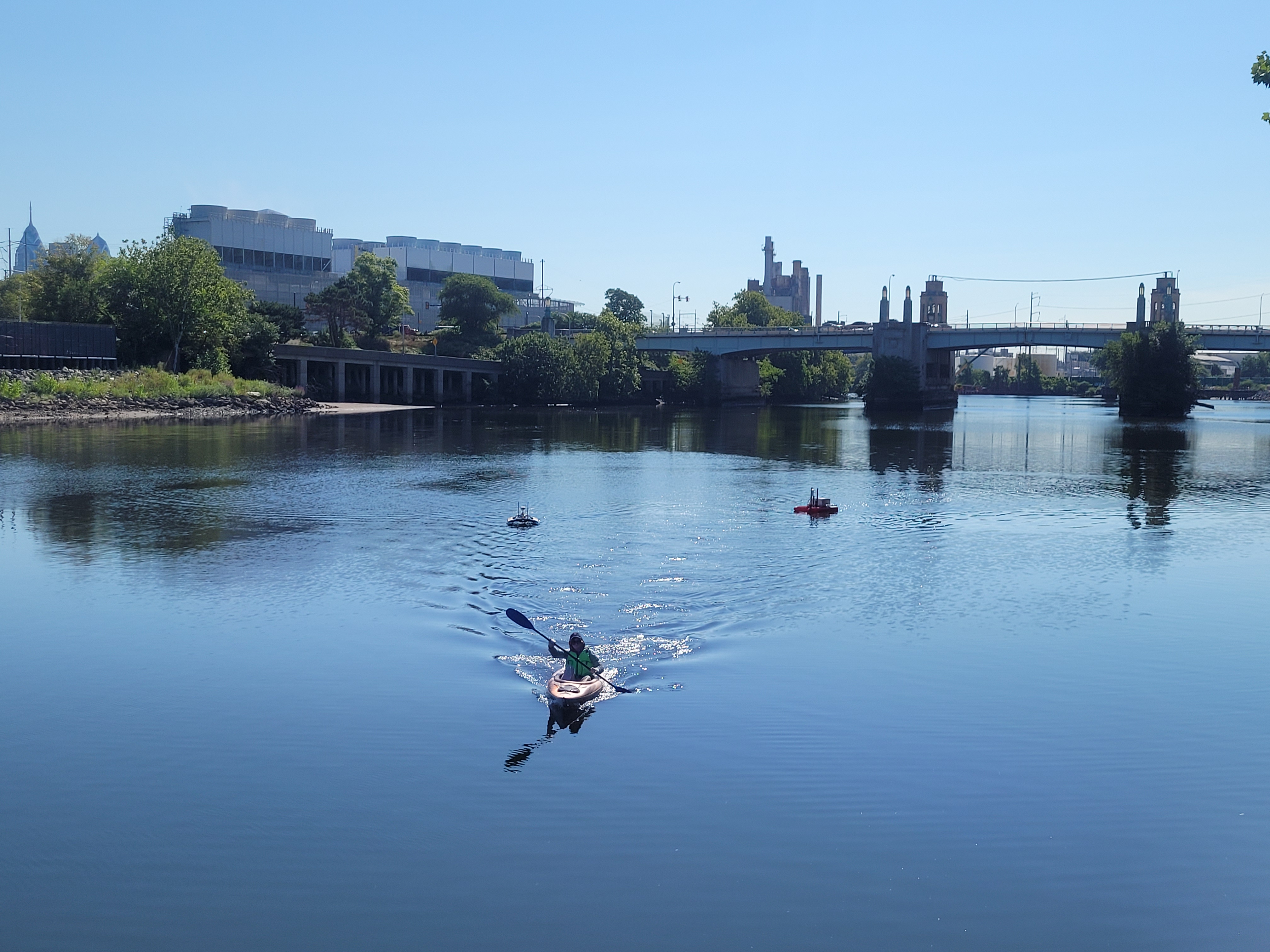
(Li et al., 2022; Edwards et al., 2023)
Summer of 2021
Getting the Clearpath Heron in working order after a full year off the water due to the COVID-19 pandemic. We had a successful season collecting depth data of the river bed autonomously. My role was to help setup the Gazebo simulation, update sensor packages for the addition of a VectorNav IMU, running the base station during deployments, and processing data collected.
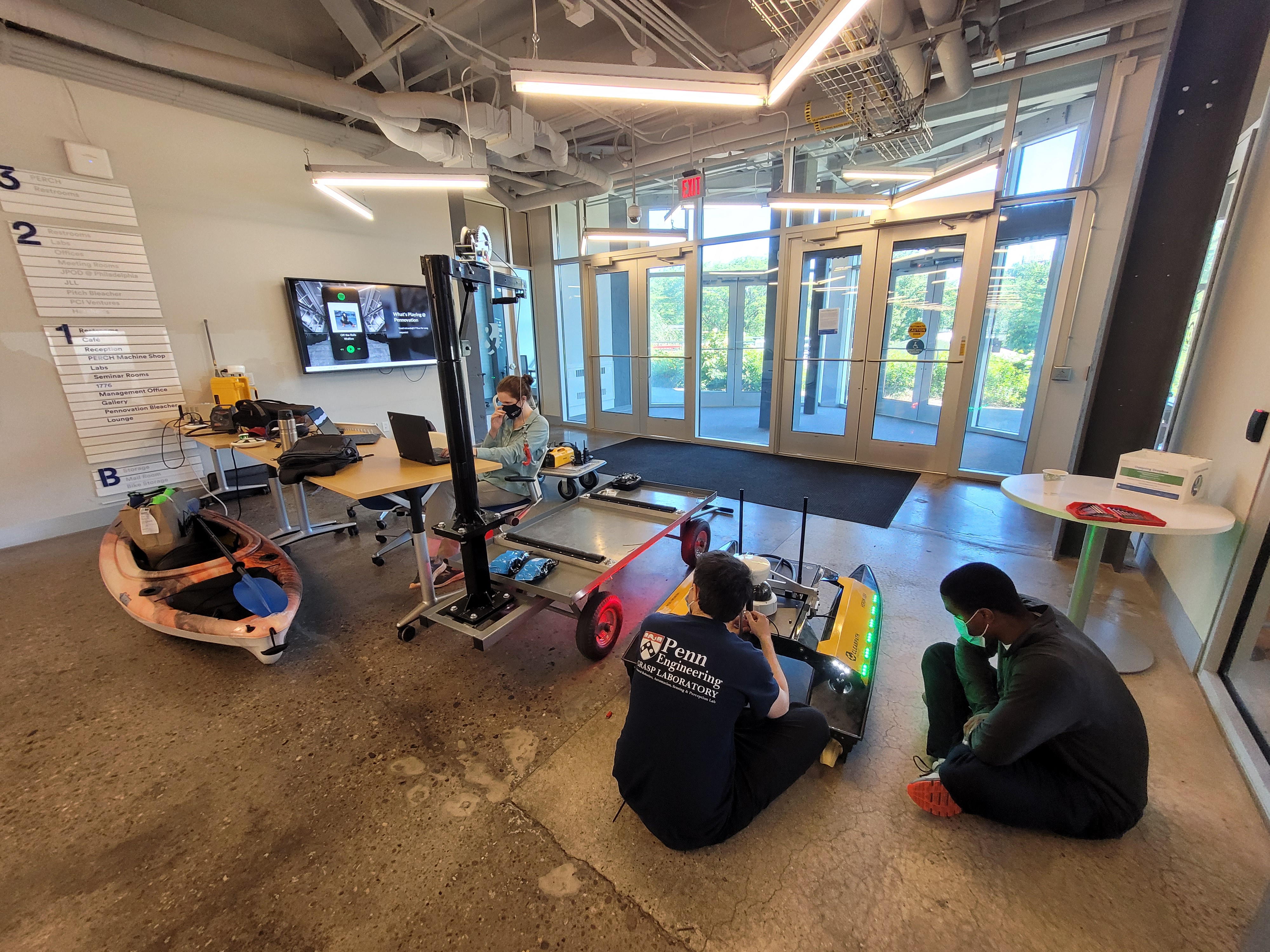
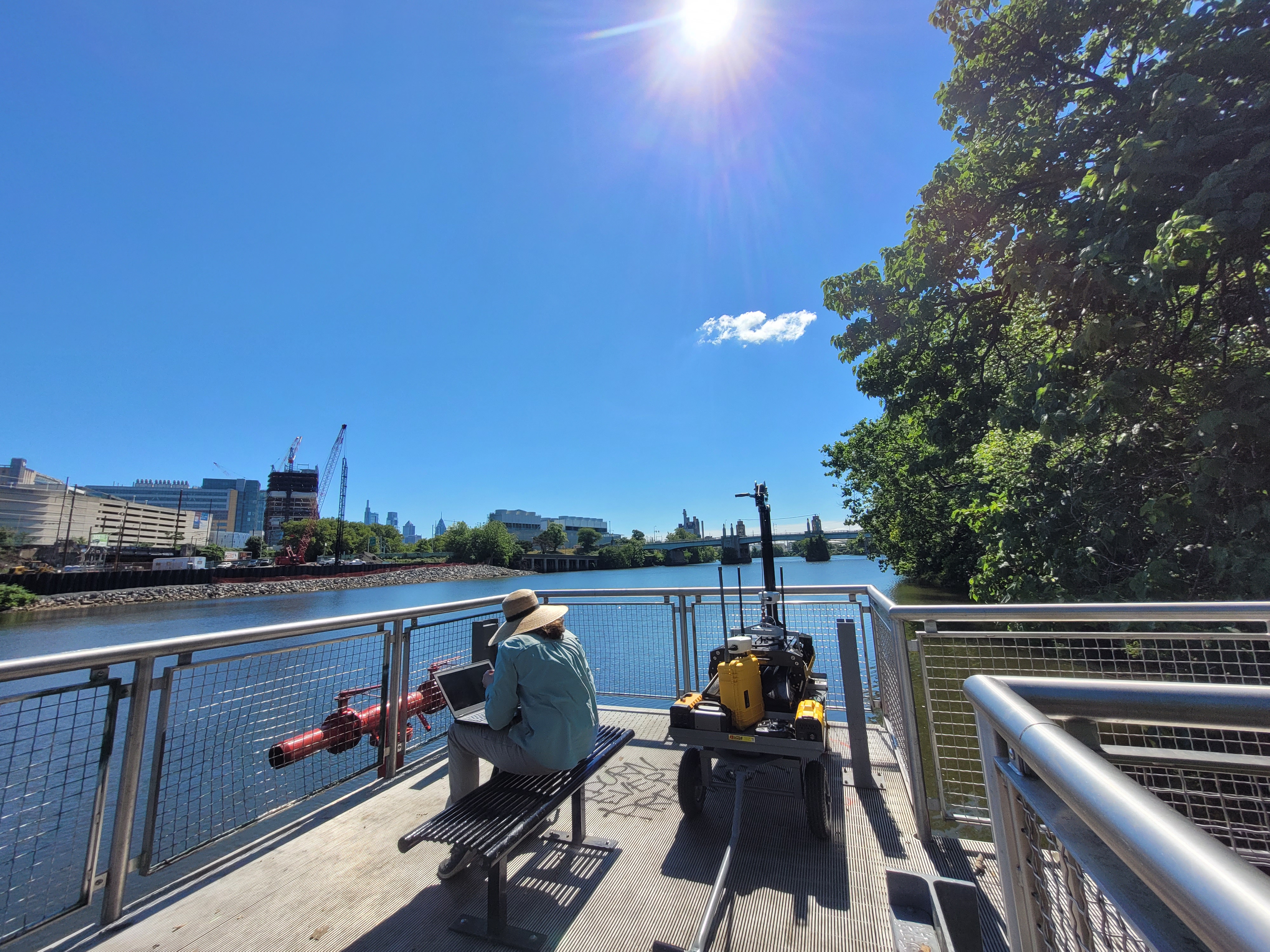
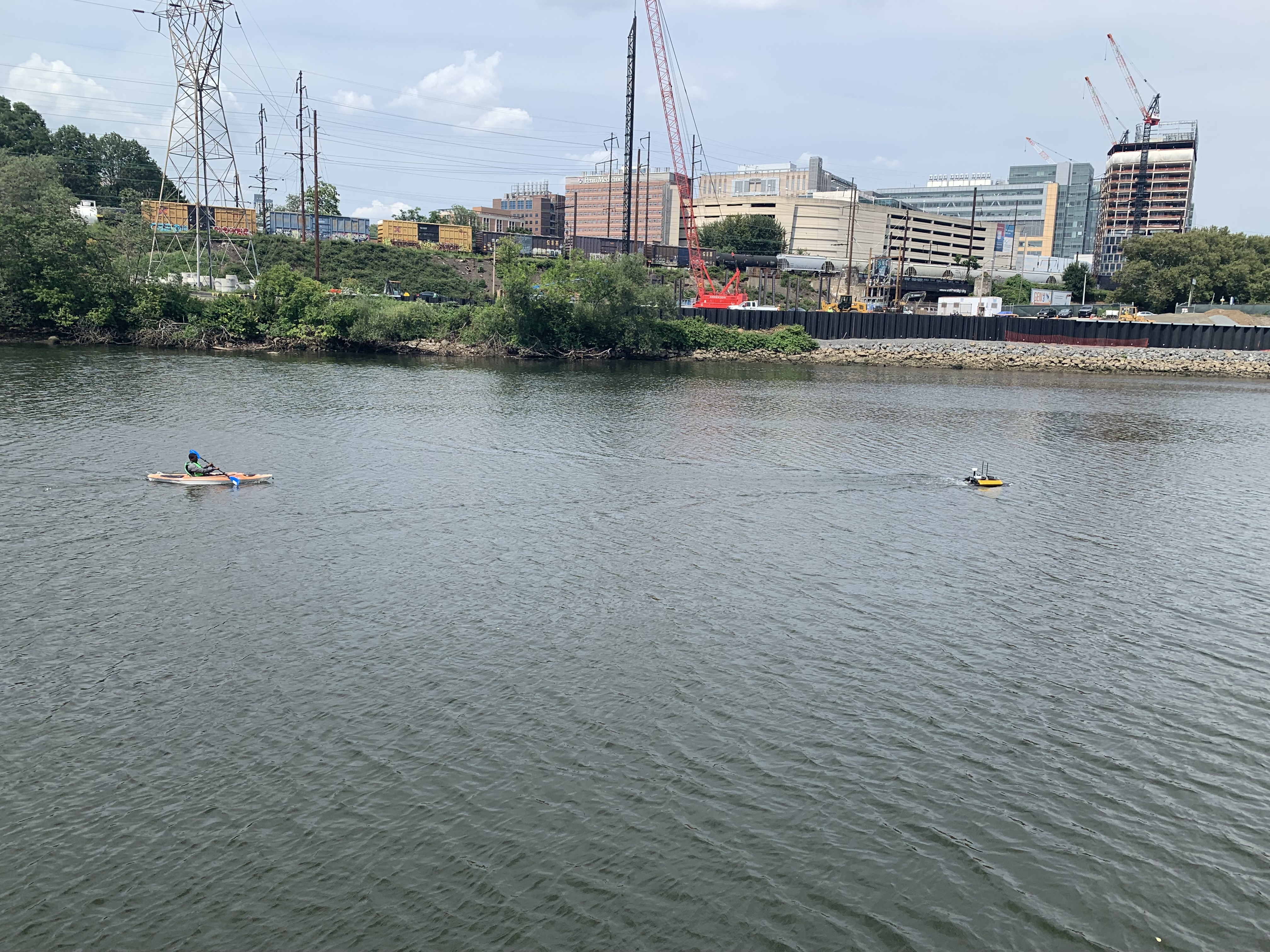
This work is done in collaboration with many students, post docs, and PIs in the ScalAR lab.